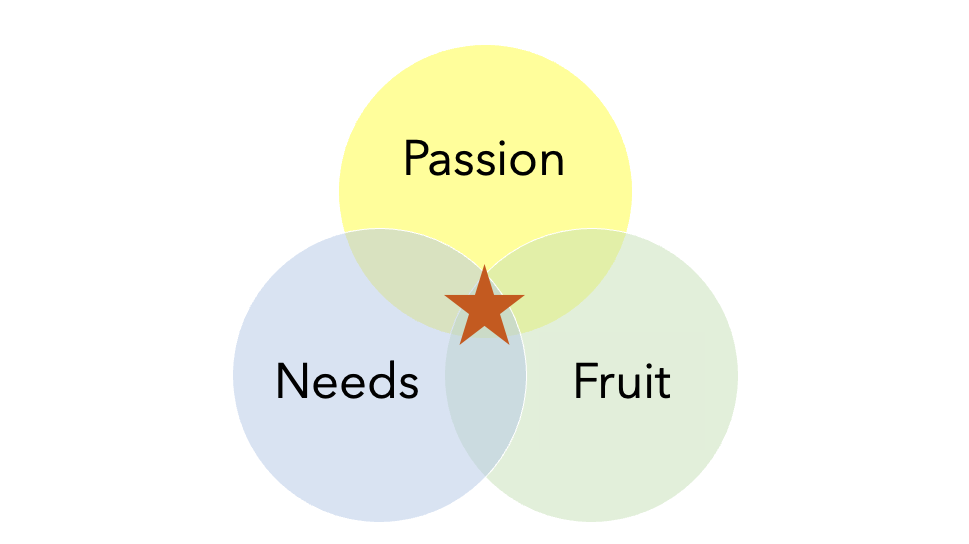|
The New Testament provides four passages that focus in on the "spiritual gifts" — divinely given gifts that "enable us to 'do the work of ministry, to build up the body of Christ, to reach unity in the faith and in the knowledge of God's Son'"; gifts given so that you might "fulfill your unique calling within the body of Christ" (Dan Darling, Spiritual Gifts: What They Are and How to Use Them, p. 15). These four passages that focus on the spiritual gifts in a special way are Romans 12:3-8; 1 Corinthians 12:4-31 (the whole context of 1 Corinthians 12-14 is important!); Ephesians 4:7-16; 1 Peter 4:10-11. A lot can be said about the spiritual gifts, and a lot has been said about the spiritual gifts. (For a deeper dive into this topic, see the "Recommended Resources" further down in this post.) My purpose with this short post is simply to orient you the "HOW?" question — how can you zero in on identifying and leveraging the unique gifts God has given you? This post certainly isn't the only word or the last word on the subject — but I'm hoping it can contribute in practical ways to something every follower of Jesus should have on his or her radar screen. How Can I Identify and Use My Spiritual Gift(s)? A Practical Tool.To help people begin to identify and use their spiritual gifts, I encourage them to think in terms of three overlapping circles. (See the picture at the top of this post.) Brief explanation of each circle is provided here: PassionThink in terms of passion, interest, and unique abilities. What are you interested in and passionate about? What skills do you have? This category is where you can benefit from personality tests such as Clifton Strengths or Working Genius. (Or others — there are lots of 'em out there!) Needs of the churchThe more you dig into the spiritual gifts, the more you'll see that they aren't ultimately given for your personal satisfaction and self-fulfillment. You have gifts that contribute to the larger body of Christ and the mission of Christ in the world. This truth means you don't stop with the question "What do I want to do?", but you press forward into the question of "What needs to be done?" This truth also means your investigation into spiritual gifts should actively listen to church leadership (i.e., ask a pastor or ministry leader where you can serve, and I'm sure they'll have ideas!), and not "go rogue" against what the leadership of your local church would advise or how they'd steer you forward. Fruit / AffirmationThis circle is where you stay prayerfully attuned to how the Holy Spirit is using your service, and you humbly and teachably listen to what others say. Are you seeing fruit from your service? (And to be clear: This should not be reduced to numeric metrics. Better questions to ask include these: Are people growing in the fruit of the Spirit [Galatians 5:22-23], in their understanding of God's Word and communion with the Lord, in their own faithful perseverance, in a missional approach to their spheres of influence, etc.?]) Where have you heard others say something like the following, "You were built do do this!" or "Your contribution in this area is making such a difference!" Concluding thought(s)The place where these three circles intersect, then, is a great indicator of giftedness and ways you can contribute meaningfully to the life of your local church and advancing God's mission in the world. One more comment: Identifying and using your spiritual gifts is often more of a process that may take some experimentation and exploring. As you proceed in faithfully discovering and deploying your gifts, these three circles can give you both direction and a head start. The church needs what you have to offer with your spiritual gifts! Interested in digging in more deeply?Resources listed alphabetically by author's last name.
Did you enjoy this post? You may also be interested in...
0 Comments
Leave a Reply. |
Tim WiebeChristian. Husband. Father. Pastor. Learner. Contributor. Reader. Categories
All
Archives
June 2024
|
© 2014-2024 | 11607 M Circle, Omaha NE, 68137 | www.thebrooksideinstitute.net


 RSS Feed
RSS Feed
